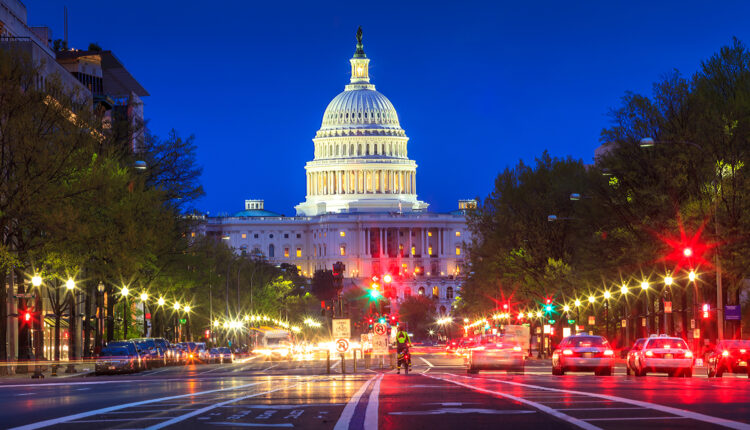
Here’s How Voters in Oregon and Washington, D.C. Can Vote on Psychedelics This Tuesday
Voters in the state of Oregon and in Washington, D.C. will have the opportunity to loosen local laws affecting use and possession with a vote on psychedelics this Tuesday, November 3.
Oregon Looks Towards Service Centres
In Oregon, Measure 109 or the Psilocybin Mushroom Services Program Initiative, asks voters if they would support the creation of a program that would allow for the administration of psilocybin products to adults over the age of 21.
If enough Oregonians vote ‘yes’, the local health authority would be tasked with creating regulations around the program under the guidance of the yet-to-be-established Oregon Psilocybin Advisory Board. Psilocybin service centres would be established where people would be allowed to purchase, possess and consume the substance under the guidance of a facilitator.
While this wouldn’t legalize psilocybin, it would give people the opportunity to use the substance in a safe and controlled setting. If passed, Oregon would become the first state to decriminalize psilocybin.
The D.C. Vote on Psychedelics Tackles Law Enforcement Priority
In D.C., Initiative 81 is a little different. A ‘yes’ vote on the Entheogenic Plants and Fungi Measure would mean voters support a declaration that police should treat the non-commercial cultivation, distribution, possession and use of psychedelic substances derived from plants as one of the lowest law enforcement priorities.
In addition, it would define entheogenic plants and fungi as species of plants and fungi that contain ibogaine, dimethyltryptamine (DMT), mescaline, psilocybin or psilocyn, and ask the D.C. attorney general and U.S. attorney for D.C. to stop prosecuting residents who use them.
Although voters in Denver approved a similar ordinance in 2019 specific to psilocybin, Washington, D.C. is the first jurisdiction in the United States to vote on multiple psychedelic plants. (Psychedelic plants and fungi have already been decriminalized in cities such as Oakland, Santa Cruz, and Ann Arbor, however those initiatives were passed by municipal governments.)
Oregon’s Measure Written By Therapists
The measure in Oregon was written by therapists who want to use the main ingredient in magic mushrooms to help treat patients suffering from mental health conditions such as post-traumatic stress disorder, depression, and anxiety. Dr. Nick Gideonse, a hospice director and an associate professor at Oregon Health and Science University, recently told Oregon Public Broadcasting that an experience with psilocybin could provide “a real breakthrough” for someone who is terminally ill as well.
So far, the initiative has been well publicized, garnering an endorsement from the Democratic Party of Oregon, support from several veterans’ groups, and even a $2-million donation from Dr. Bronner’s, a company that has made its support for psychedelic research and therapy well-known. Yes on Psilocybin Therapy, a committee that backs the initiative, has also raised nearly $1.6 million in support.
Those in opposition have not been widely publicized, although Kevin Sabet of the anti-cannabis lobby group Smart Approaches to Marijuana said the initiative would treat Oregonians like lab rats, and that “medical research should not be the purview of a popular vote”.
In Washington, D.C., Initiative 81 was proposed by Melissa Lavasani, a woman who used entheogenic plants and fungi to overcome severe postpartum depression. The D.C. government employee is also the chair of a campaign called Decriminalize Nature.
A recent poll shows that support for the initiative in Washington, D.C. is strong, with 60 percent planning to vote ‘yes’.
We look forward to seeing the results of the vote on psychedelics in these two states next week.



